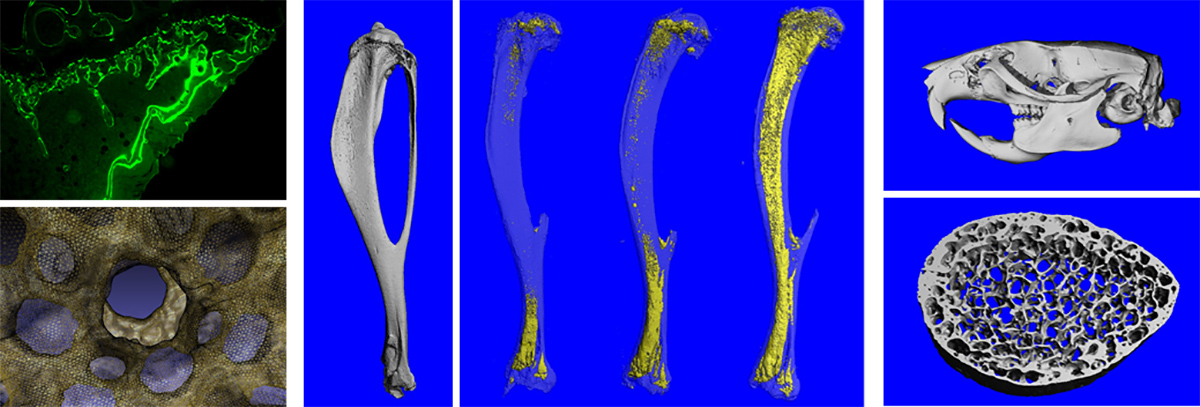Bone Biology and Metabolism Laboratory

Welcome to the Bone Biology and Metabolism Laboratory at the University of Toledo, within the Department of Orthopaedic Surgery.
We are investigating molecular mechanisms which are common for regulation of energy metabolism and bone mass/quality with a premise to therapeutically target them to treat both diabetes and diabetic bone disease. The Lab is also investigating the role of these mechanisms in support of prostate cancer metastasis to bone and fracture healing.
Diabetes, obesity, and osteoporosis are major public health concerns due to their prevalence in our increasingly sedentary and aging society. The peroxisome proliferator-activated receptor-gamma (PPARG) transcription factor is a key regulator of glucose metabolism and energy expenditure. This protein also regulates lineage commitment of bone marrow mesenchymal stem cells (MSC). We have demonstrated that PPARγ protein is involved in changing of MSC phenotype observed during aging and diabetic disease. Changes in the MSC phenotype include shifting of the MSC differentiation potential toward adipocyte (fat cells) and away from osteoblasts (bone forming cells) which leads to the bone loss with simultaneous accumulation of fat in bone cavities. PPARG is also essential for osteocyte function by controlling sclerostin expression, acting as a molecular brake for osteocyte bioenergetics, and controlling their support for growth of metastatic cancers. PPARG protein is a target for a class of anti-diabetic drugs TZDs which decrease glucose levels and increase insulin sensitivity. Prolonged treatment with classical TZDs leads to the bone loss and increased number of bone fractures in diabetic patients. However, selective modulators of PPARG activity may provide novel pharmacological means to treat simultaneously energy and bone metabolic diseases.


